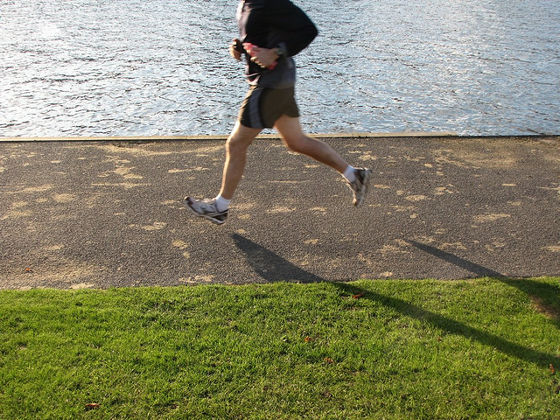Neuroscientists explain the magical mechanism that makes you feel refreshed when you run

By
The question 'Why do you want to run for such a long time?' Is one of the most frequently asked questions for runners who enjoy jogging and marathon. The answer to such a question is 'I feel good when I'm jogging', but this is not just a matter of mood, but it seems that the phenomenon has been scientifically confirmed.
Why Running Helps Clear Your Mind --Science of Us
http://nymag.com/scienceofus/2016/04/how-neuroscientists-explain-the-mind-clearing-magic-of-running.html
Some people may go jogging when they get stuck at work, saying, 'I'm going for a bit of a run,' but this is not uncommon, and writer Joyce Carol Oates said in an interview with The New York Times. When you run, your mind separates from your body, depending on the movement of your feet and the rhythm of waving your left and right hands. ' In an interview with Runner's World magazine, YouTuber Casey Naystat said, 'Many of the big decisions we've made in the last eight years have been triggered by jogging.' And the best expression of that mental situation is the phrase 'it's hard to feel depressed while running' quoted in the book 'The Joy of Running'.
Many runners often feel that they have become a new self when jogging, but in a sense this seems to be physically correct. It was once thought that the nerve cells that make up the brain stop increasing at a certain age and only gradually decrease with age, but in the latest brain science research over the past 30 years, this The idea has come to be denied. In fact, brain nerve cells can increase even in older people, and it is known that the only trigger is 'active aerobic exercise'. 'As far as we know, aerobic exercise is the only trigger,' said Karen Postal, president of the American Academy of Clinical Neuropsychology.

By
It is also worth noting where these nerve cells are born. New nerve cells are born in the hippocampus , which is thought to be involved in memory and spatial learning ability. It has been pointed out that aerobic exercise is involved in improving memory, but this discovery has clarified the existence of a mechanism for improving memory in the brain physically. 'By doing a sweaty exercise for 30 to 40 minutes, new nerve cells are born in the brain, and that happens in the part that controls memory,' said Postal.
What has been confirmed with the development of new nerve cells is a phenomenon in which blood flow increases in a specific part of the brain. The part of the brain just below the forehead, called the 'frontal lobe,' is thought to be involved in cognition, choice, and rational judgment, and is also responsible for human intelligence. It is known that aerobic exercise increases blood flow in the frontal lobe and activates activity. From this, it becomes clear that aerobic exercise has a positive effect on humans' advanced judgment.
The frontal lobe is also known to play an important role in emotional suppression. An experiment showing this is being conducted by Emily E. Bernstein, a PhD major at Harvard University. In the experiment, in one scene of the movie 'Champ ' to 80 participants, when the main character, Champ, died, his son, TJ, clung to tears, showing the most tearful scene, and the reaction after that. I'm investigating.
The Champ (1979) Death / Final Ending Scene VERY SAD --YouTube
Prior to the experiment, half of the participants were allowed to jog for 30 minutes and the other half were allowed to stretch for 30 minutes before watching the movie. After watching the movie, I asked them to fill out a questionnaire about how their feelings changed due to the movie, and investigated the reaction of their feelings. After that, both groups are busy with different things for 15 minutes. After that, I conducted a questionnaire again to investigate my feelings.
As a result, it turned out that the group who jogging recovered faster than the group who just stretched. The results show that jogging is effective in relieving depressed feelings.
It has also been pointed out that the mental state of 'becoming nothing', which many people feel when jogging, also affects their judgment and thinking. In his essay 'What I Talk About Running, ' Haruki Murakami, the writer, says that he runs to be nothing.

By wholog why
Related Posts:







